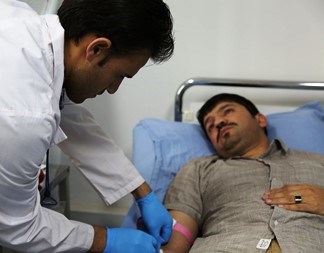About the health workforce
About the health workforce
 The health workforce is the most important resources for health systems in scaling up health interventions to progress towards universal health coverage. the Sustainable Development Goals underpin the health workforce with a target (3c) to “Substantially increase health financing, and the recruitment, development, training and retention of the health workforce in developing countries, …”. The world suffers from shortage of health workers and if the current trends continue, a shortfall of 18 million health workers is projected in 2030, primarily in low- and lower-middle-income countries.
The health workforce is the most important resources for health systems in scaling up health interventions to progress towards universal health coverage. the Sustainable Development Goals underpin the health workforce with a target (3c) to “Substantially increase health financing, and the recruitment, development, training and retention of the health workforce in developing countries, …”. The world suffers from shortage of health workers and if the current trends continue, a shortfall of 18 million health workers is projected in 2030, primarily in low- and lower-middle-income countries.
The health workforce is all people primarily engaged in the actions with the primary intent of enhancing health, this includes doctors, nurses, midwives, pharmacists, dentists, physiotherapists, laboratory professionals, as well as workers trained in other professions but who are working in the health sector – managers, economists, accountants, information technologists and all other administrative supporting workers.
The Region is facing major health workforce challenges. Overall, production and availability of health workers is suboptimal and imbalanced. The "World health report 2006" identified 7 countries in the Region (out of 57 countries globally) in health workforce crisis with less than 23 doctors, nurses and midwives per 10 000 population. The inequitable geographic distribution of the health workforce is a challenge in several Member States, and raises concerns in relation to quality, relevance and performance of health workers. Population health outcomes suffer when adequate and appropriately skilled health workers are not available. There is also a gap in reliable and updated health workforce information. A number of countries facing protracted crisis are facing shortages in health workers, and acts of violence towards health care facilities and workers, in blatant violation of international human law, raises great concern over their safety and security in several countries.









